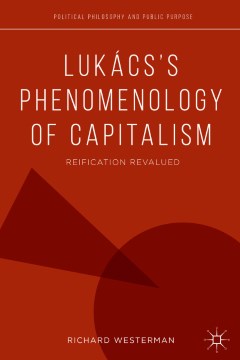Book | Chapter
Introduction
the Lukács debate
pp. 1-30
Abstract
This chapter surveys the key points of the debate around Lukács. Westerman analyses a number of critical interpretations, most of which treat Lukács as a neo-Romantic or Idealist, and so assume that Lukács wrongly designates the proletariat as a subject somehow standing outside of social structures that it created and is capable of acting on. In contrast, more sympathetic readings, particularly those of Lucien Goldmann and Andrew Feenberg, read Lukács as treating subject and object as coequal. Westerman aligns his argument with such approaches: Lukács's social theory should instead be read in the light of his engagement with Neo-Kantianism, phenomenology, and the formalist philosophy of art during his time in Heidelberg.
Publication details
Published in:
Westerman Richard (2019) Lukács's phenomenology of capitalism: reification revalued. New York, Palgrave Macmillan.
Pages: 1-30
DOI: 10.1007/978-3-319-93287-3_1
Full citation:
Westerman Richard (2019) Introduction: the Lukács debate, In: Lukács's phenomenology of capitalism, New York, Palgrave Macmillan, 1–30.


